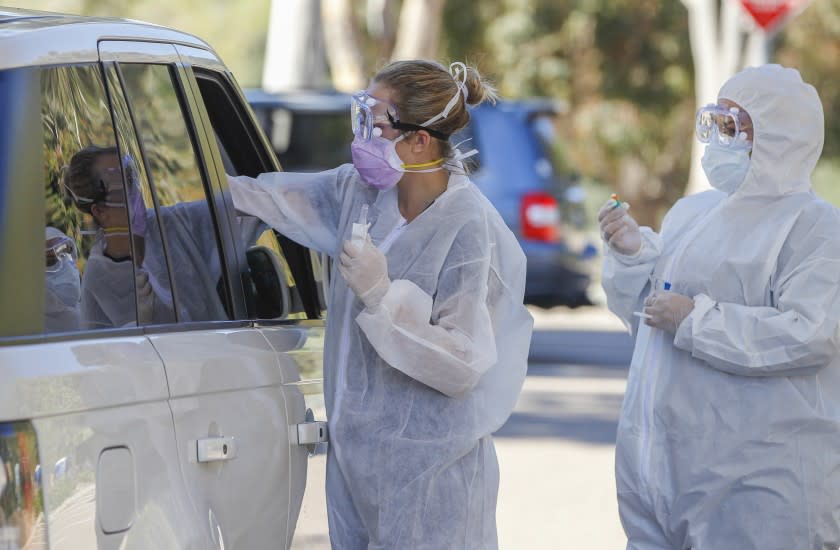Mystery syndrome similar to Kawasaki disease linked to coronavirus at Children's Hospital Los Angeles

Three patients at Children's Hospital Los Angeles who displayed symptoms similar to Kawasaki disease, a rare condition that can weaken blood vessels in children, have tested positive for antibodies against the novel coronavirus, indicating a potential link between the little-understood syndrome and the virus, according to a doctor who studies Kawasaki disease.
Recently, doctors in Los Angeles, New York and the United Kingdom have identified a condition called pediatric inflammatory multi-system syndrome, or PIMS, among children who have tested positive for antibodies against the novel coronavirus, Dr. Jacqueline Szmuszkovicz, a pediatric cardiologist at Children’s Hospital Los Angeles, said in an interview.
The presence of such antibodies indicates the children were previously infected with COVID-19, the disease caused by the coroanvirus, she said.
“The fact their antibodies came back positive means this inflammation may be a response to a COVID-19 infection in the past,” Szmuszkovicz said.
She stressed that doctors and researchers around the world are still working to make sense of the finding: “We are learning every day about this new syndrome.”
The symptoms of PIMS are similar to those of Kawasaki disease, a rare condition with about only 5,500 diagnosed cases a year in the United States, Szmuszkovicz said. The symptoms include a high, persistent fever; swollen hands and feet; red, cracked lips; a red tongue; and red eyes.
Left untreated, it can cause aneurysms in the coronary arteries, Szmuszkovicz said.
On Wednesday, New York state's Department of Health said it had identified 64 suspected cases of PIMS "potentially associated" with COVID-19.
"The majority of patients who have presented with this syndrome have tested positive for SARS-COV-2 or corresponding antibodies," the department said in an advisory to hospitals and local health departments.
Two days earlier, Demetre Daskalakis, an official in New York City’s Department of Health and Mental Hygiene, circulated a letter saying 15 children, ages 2 to 15, in city hospitals displayed symptoms of PIMS.
Of the 15, Daskalakis wrote, four tested positive for COVID-19 through polymerase chain reaction testing, meaning they were infected at the time of the test. An additional six children tested positive for antibodies against the coronavirus, indicating they were previously infected.
All 15 children had a fever; more than half had a rash, abdominal pain, vomiting or diarrhea. More than half of the children needed blood pressure support, and five required a ventilator, Daskalakis wrote.
At Children’s Hospital Los Angeles, doctors are calling back patients diagnosed with Kawasaki disease at the onset of the pandemic to test for antibodies against the coronavirus. Any parent whose child suffers a high fever lasting four days or more should seek out a pediatrician, Szmuszkovicz said.
“Certainly, if they see any of the other signs — the rash, the red tongue, red eyes — we encourage them to seek care," she said.

